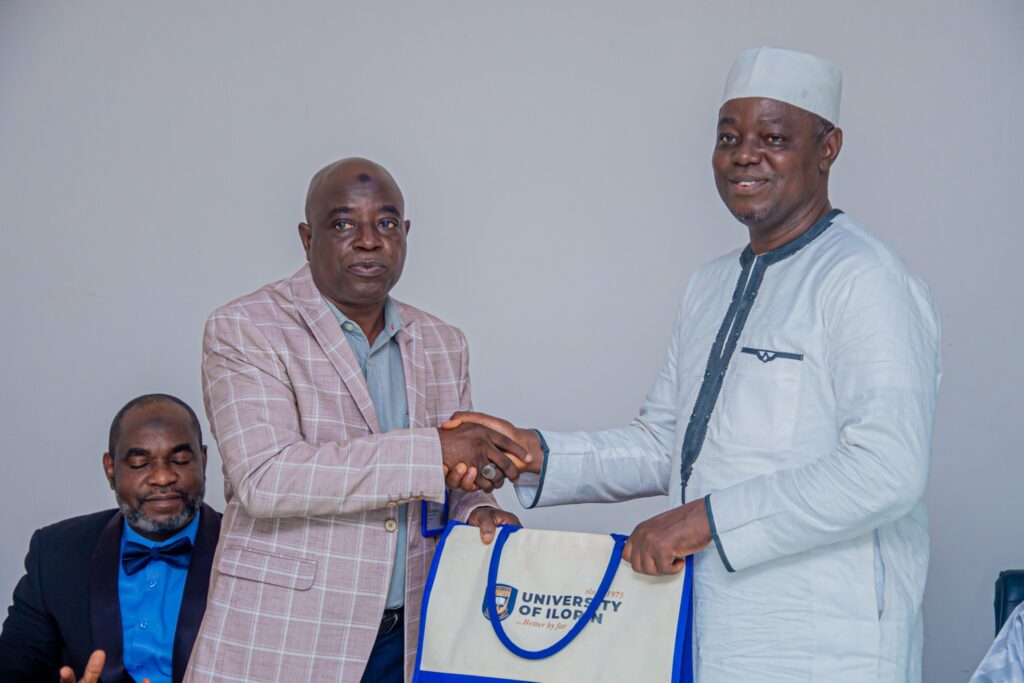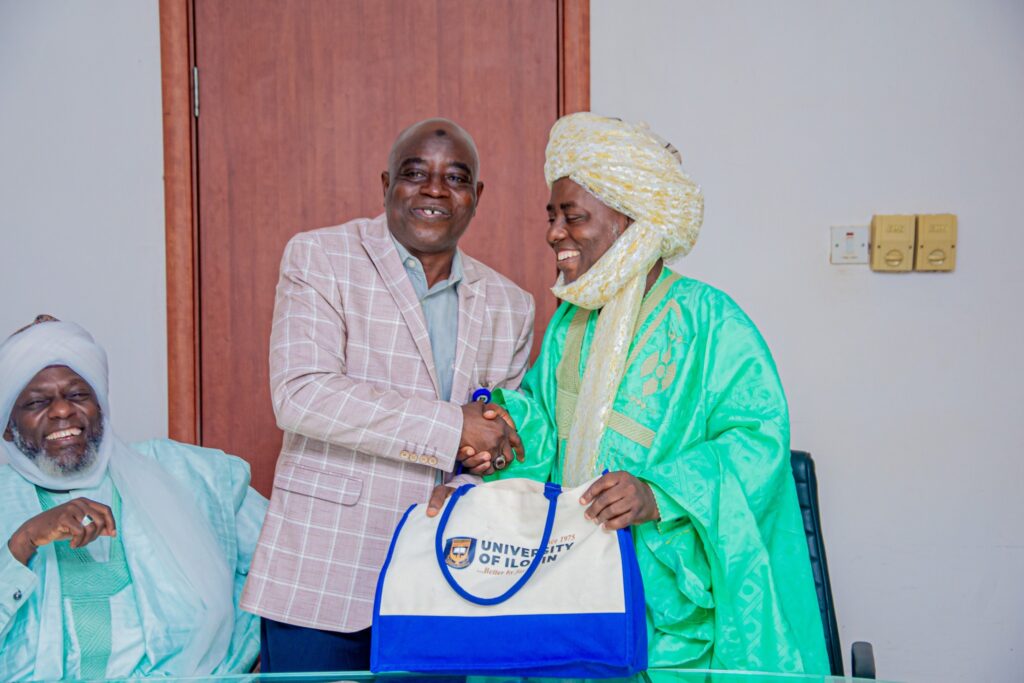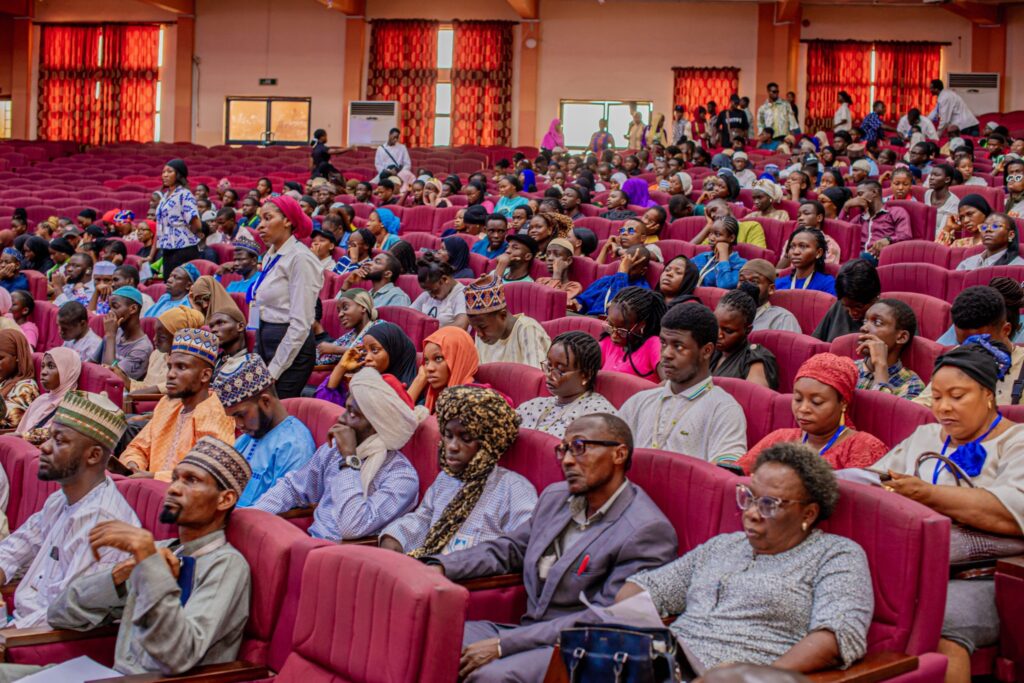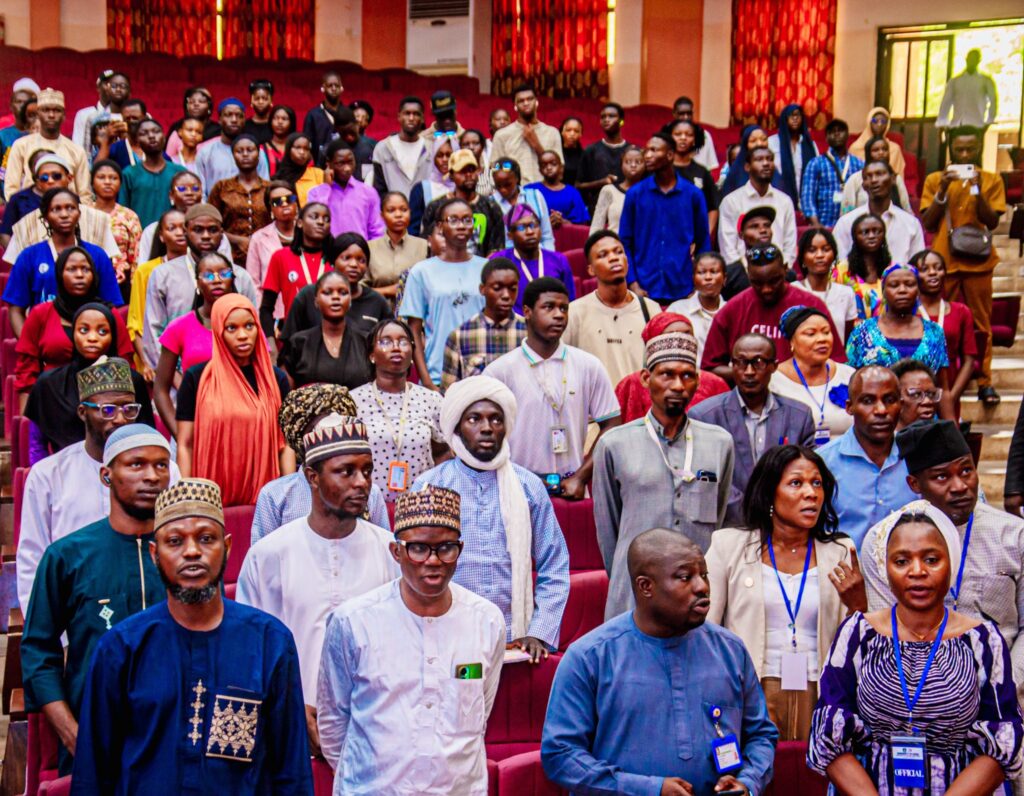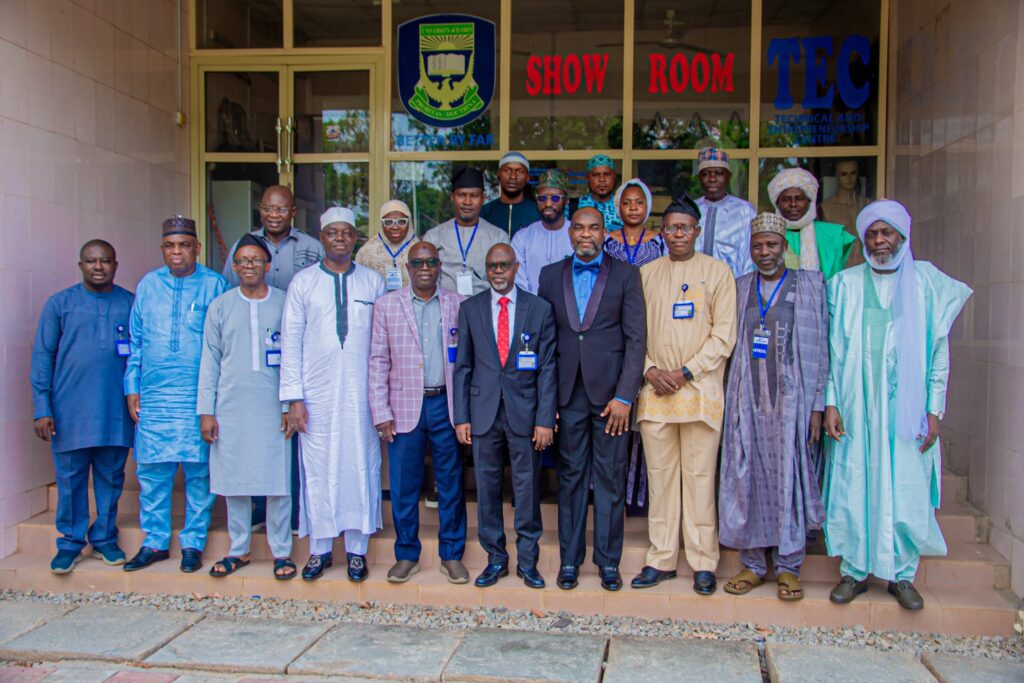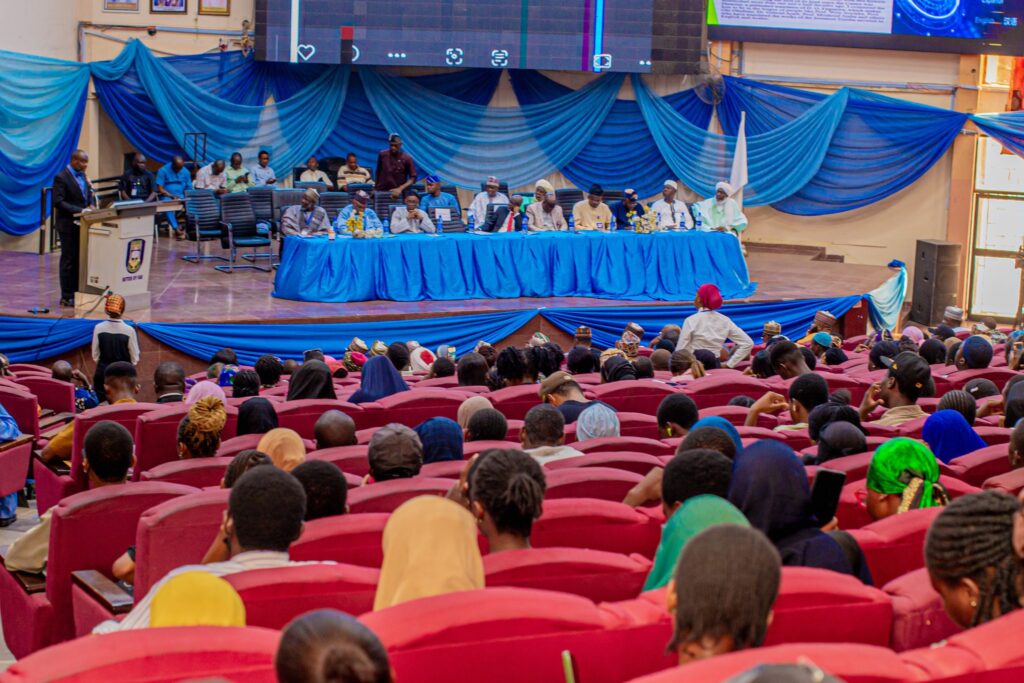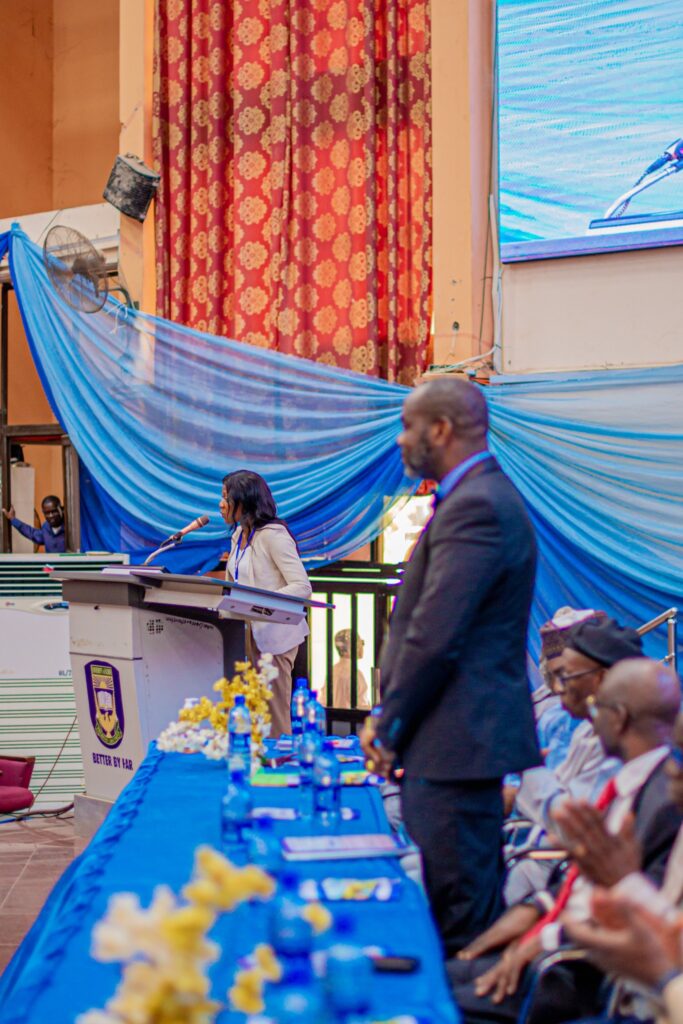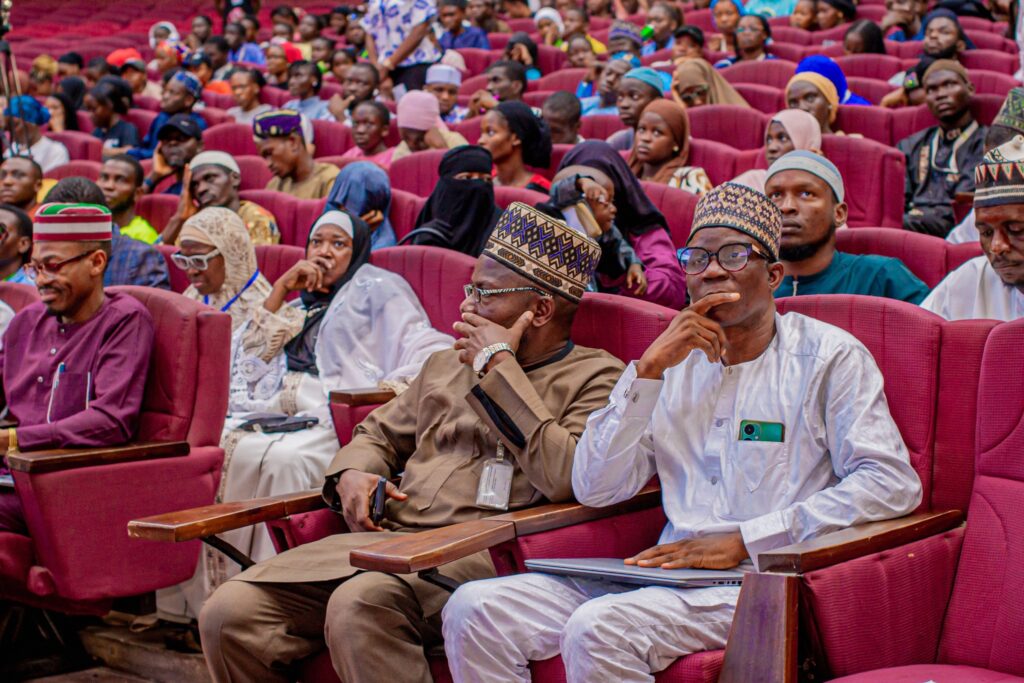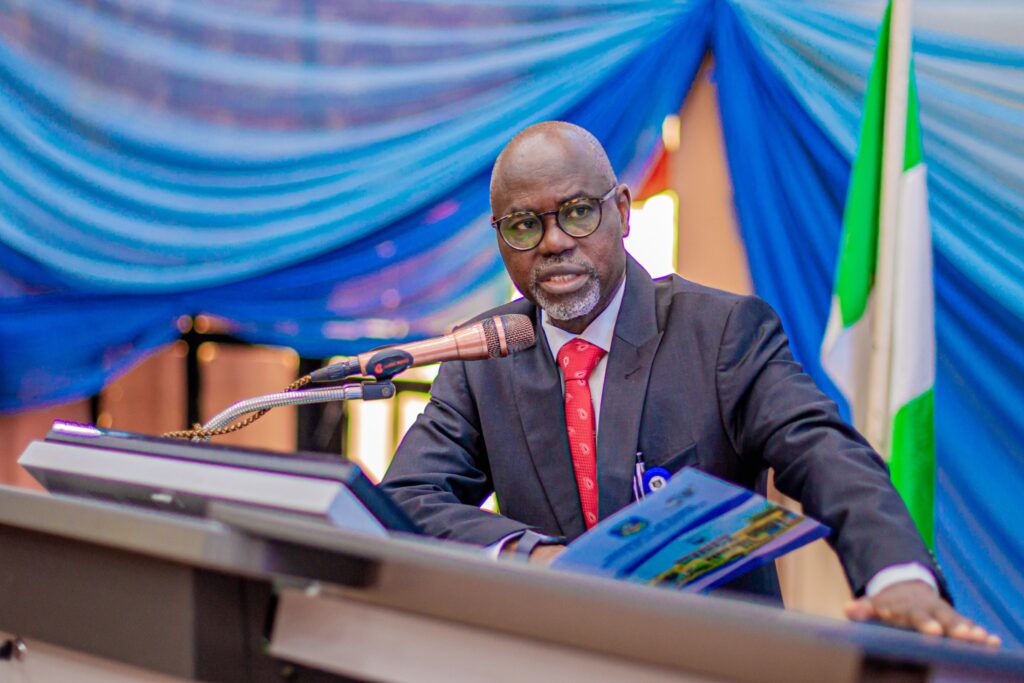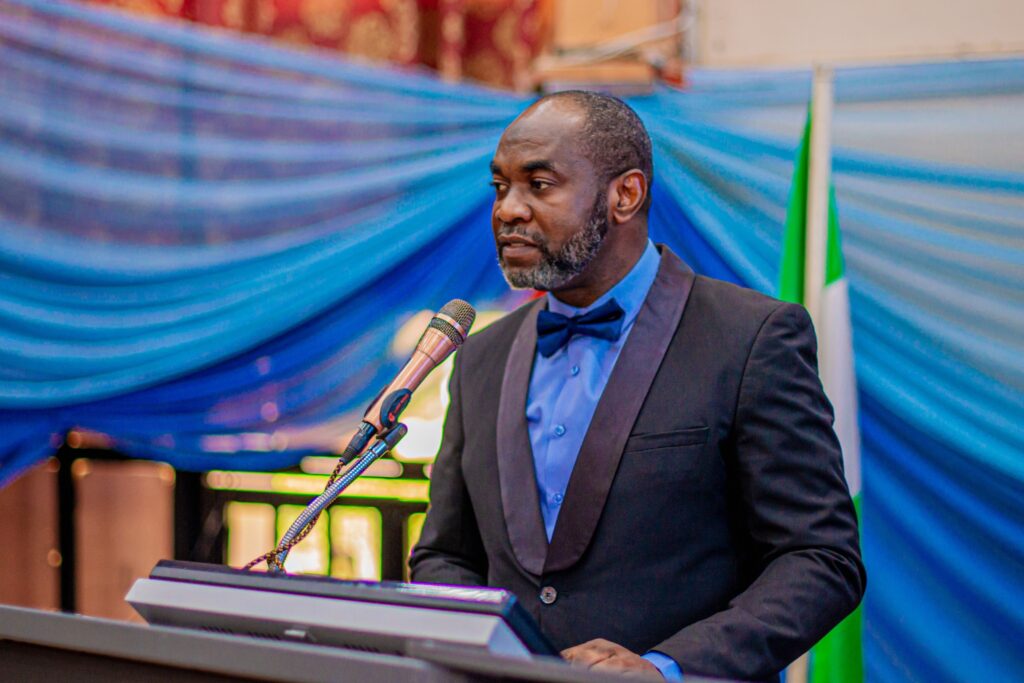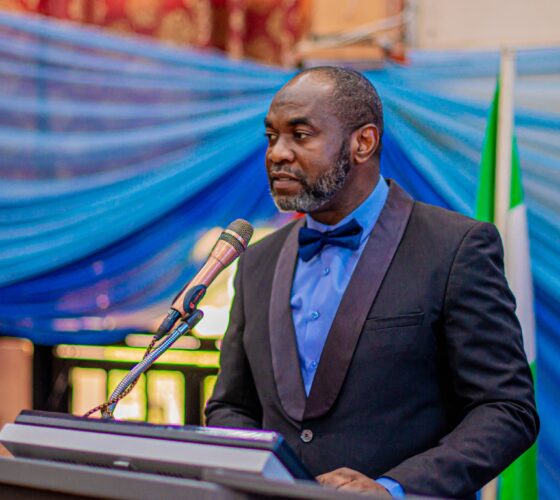
Adedimeji tasks translators on ethical use of AI
Campus News
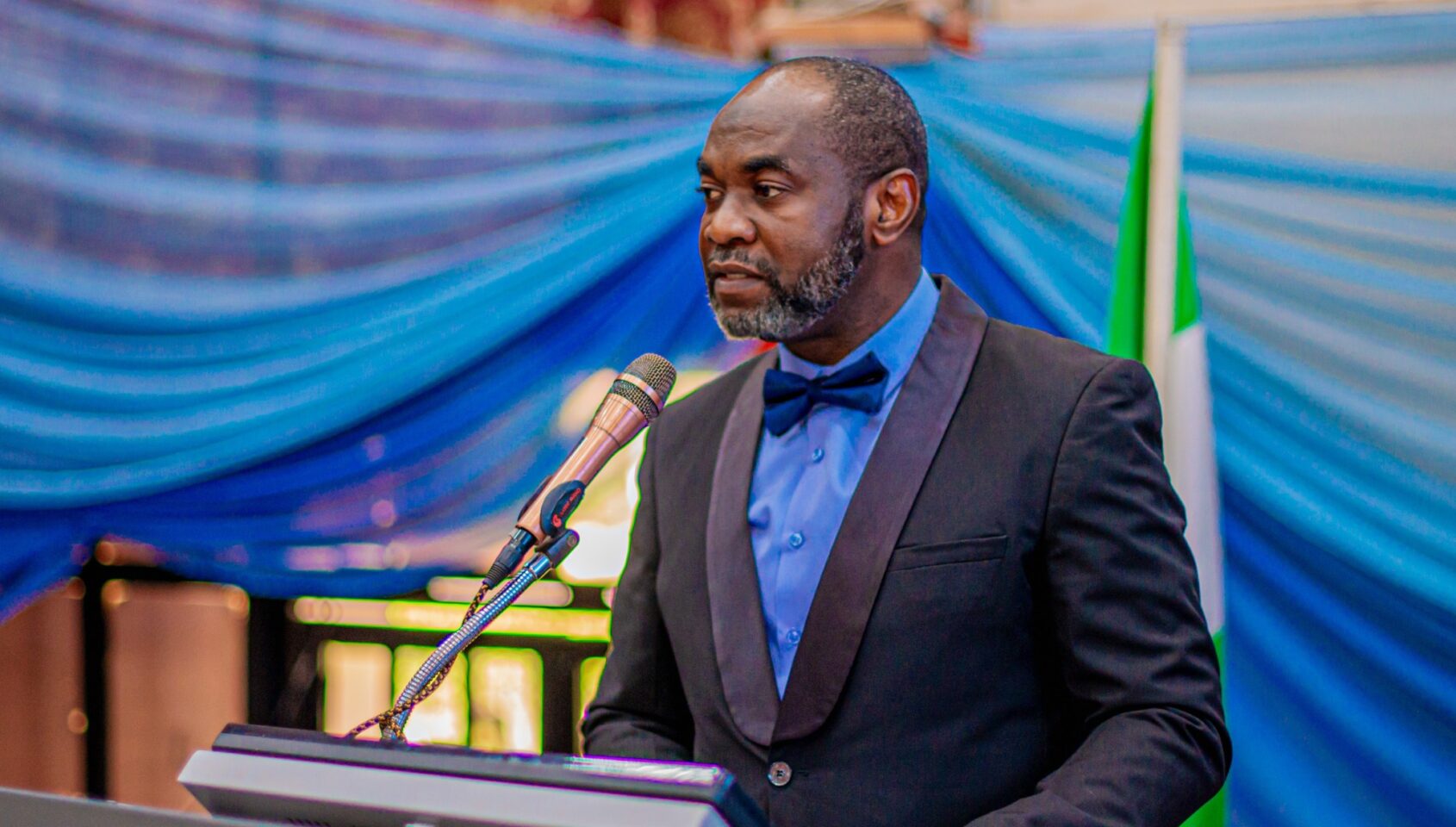
The Vice Chancellor of the African School of Economics (The Pan-African University of Excellence), Abuja, Prof. Mahfouz Adedimeji, has called for collaborative engagement and the fostering of a community of practice among translators by creating platforms to share experiences, insights, and best practices on using AI in their works.
Prof. Adedimeji made the call last Monday (April 14, 2025) while delivering the maiden Public Lecture organised by the Institute of Translation Arts, University of Ilorin, at the University Auditorium..
This was as the Vice Chancellor of the University of Ilorin, Prof. Wahab Olasupo Egbewole, SAN, poured encomiums on the Ag. Director of the Institute of Translation Arts, Dr. Aliy Abdulwahid Adebisi, for organising the first-ever Public Lecture of the Institute, 13 years after its establishment.
In his lecture, entitled “Translation and Translators in the Age of Artificial Intelligence: Confronting Threats and Connecting Opportunities”, Prof. Adedimeji noted that bodies such as the Nigerian Institute of Translators and Interpreters (NITI) and the Association for Translation Studies in Africa (ATSA), along with the Association for Translation Studies in Nigeria (ATSN), which are considered the major translation bodies that have emerged in Nigeria, should work more closely together to advance the discipline and serve as support networks for practitioners.
Prof. Adedimeji explained that investment in training for translators, prioritising quality control, promoting cross-disciplinary research endeavours, addressing ethical considerations, expanding language accessibility, highlighting unique human skills, monitoring technological advancements, and supporting inclusive AI development are crucial.
As AI technologies continue to advance, the Fulbright scholar observed that the translation industry faces significant challenges that may reshape its landscape. He said while there is no doubt that these technologies promise enhanced efficiency and accessibility, they also pose threats to the role of human translators, raising concerns about job displacement, quality assurance, and the shifting demand for skills within the profession.
Prof. Adedimeji, who is a former Director of the Centre for Peace and Strategic Studies, University of Ilorin, said, “Some of the threats to human translators are the possibility of job displacement, diminishing positive perception, quality assurance, skills obsolescence, and changing demands. AI has significantly advanced machine translation (MT) systems, notably through technologies such as Google’s Neural Machine Translation (GNMT) and OpenAI’s GPT models.
“These systems can perform basic translation with increasing accuracy, threatening the foundational skill set of many translators, particularly those engaged in straightforward text translation. One of the most critical concerns about the rise of AI generally and in translation especially is the potential for job displacement, with automated machines replacing humans. As organizations increasingly adopt AI-driven translation solutions, the demand for human translators may decline.”
He, however, said that while the rise of Artificial Intelligence (AI) in translation presents threats and challenges to human translators, it also opens up a spectrum of new opportunities. According to him, these opportunities include the enhancement of translation tools, the emergence of new roles and specialisations, and the potential for professional growth through the integration of technology.
Prof. Adedimeji, who is also the pioneer Vice Chancellor of Ahman Pategi University, Patigi, explained that the role of human translators will continue to evolve in response to the increasing capabilities of AI-driven translation technologies. Rather than becoming obsolete, he encouraged translators to adapt and embrace new responsibilities that leverage their unique strengths.
He explained that in the age of Artificial Intelligence, translators must not only adapt to new tools but also assert their invaluable role in ensuring that communication remains nuanced, empathetic, and culturally relevant. According to him, the future of translation is not a battle of man versus machine; rather, it is an exciting new chapter where both will coexist, enhancing the way we communicate in our increasingly globalised world.
Prof. Adedimeji added that it is crucial to appreciate that translation is not just an act of linguistic expression but that its essence transcends mere words. “It is an art form rooted in culture, emotion, and context characteristics that AI is still striving to grasp. For this reason, translations produced by those who lack cultural, emotional, and contextual affinity with the materials they translate are not fully trusted. As the role of translators evolves, it is important they understand that they are now more than interpreters of texts they are cultural ambassadors, tasked with bridging gaps in understanding across languages and societies”, he submitted.
Declaring open the historic lecture, earlier, the Vice Chancellor of the University of Ilorin, Prof. Wahab Olasupo Egbewole, SAN, applauded the bold initiative of the Ag. Director of ITA, Dr Adebisi, describing it as a significant step towards repositioning the Institute for greater relevance and impact.
Prof. Egbewole expressed delight that after over a decade of existence, the Institute was now stepping into the limelight with its maiden public lecture. He added that the event marked a turning point in the Institute’s journey, and praised the leadership of Dr. Adebisi for the development.
Prof. Egbewole described the theme of the lecture as not only timely and contemporary but also crucial to understanding the dynamics of a fast-evolving global landscape, saying, “Artificial Intelligence is gradually shaping the world, and the fact that the Institute of Translation Arts is interrogating its impact on translation and translators through the voices of erudite scholars is no mean achievement.”
The Vice Chancellor, who reiterated the University’s support for the Institute, however, expressed optimism that the vision and mandate behind its establishment would be fully realised. He said, “We are happy with this development. It is our hope that this public lecture becomes a sustained tradition and that steps will be taken towards institutionalising the programme.”
Earlier in his welcome address, the Ag. Director of the Institute of Translation Arts, Dr. Aliy Abdulwahid Adebisi, expressed gratitude to the University Administration for its support. He noted that the Institute is determined to become a national leader in translation studies, in alignment with the University’s broader goal of becoming the number one university in Nigeria, one of the top ten in Africa, and among the top 500 globally.
While seeking the Vice Chancellor’s continued support for the remaining programmes outlined in the Action Plan of the institute, the Ag Director assured Management that he would continue to work diligently to develop the Institute and take it to greater heights.
Dr. Adebisi, who is also the National President and a Fellow of the Nigerian Institute of Translators and Interpreters, acknowledged the contributions of his predecessors for laying solid foundation for the Centre. He said “As the 7th Director, I am deeply grateful for the solid foundation laid by my senior colleagues. Their dedication and vision have paved the way for the progress we are celebrating today.”
He, however, said that the maiden Public Lecture marks a significant milestone in the journey of the Institute as an idea birthed from the recognition of the pivotal role that language, translation, and cross-cultural communication play in national development, global engagement, and intellectual advancement.
The Director explained that the Public Lecture was conceived not merely as a ceremonial tradition, but as a platform for thought leadership, critical dialogue, and academic exchange. He said, “Through it, we aim to interrogate ideas, broaden perspectives, and bridge gaps between disciplines, communities, and cultures”.
